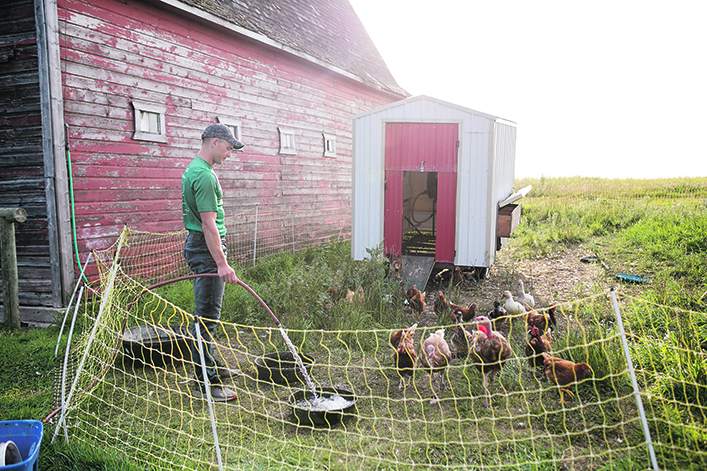Stuart Chutter raises livestock using low input and grass-based methods and also follows regenerative farming practices
Editor’s note: This story was updated Sept. 22, 2020
Stuart Chutter is challenging typical farmer stereotypes on his operation near Killaly in east-central Saskatchewan.
Growing up on a cattle ranch in British Columbia, followed by a brief stint in commercial banking, Chutter decided to return to his farm roots by buying 350 meat goats in Alberta. He then moved the farm to Saskatchewan, saying his dollar goes a lot further buying agricultural property in that province than Alberta or B.C.
Chutter says being gay adds to the diversity of his farm and community and that Western Canadian agriculture has long been built around diversity in all its forms. He said it is a very welcoming environment, Sept. 22.
These days he owns 120 purebred Red Angus and Limousin cattle, purebred British Suffolk sheep and a pen of pigs, goats, chicken, ducks and turkeys for self-sufficient eating. He is currently following a diet, which he started Aug. 17, that will see him eat only meat and eggs for 75 days. All of the food comes from his farm.
The diet is part of a health and self-improvement challenge with other prairie farmers and ag business operators. It also includes two workouts a day, which he often completes using the outdoor gym he has built, complete with tires as weights.
Chutter practises regenerative farming, including minimal soil disturbance, keeping the ground covered, planting diverse species blends with root growth extended throughout the growing season and integrating livestock over the land with managed grazing.
However, he said he is not a purist, noting that conventional practices are still required and valuable for feeding the world. Conventional agriculture is already on its own regenerative journey, he added.
Chutter said there’s a place for all types of farmers in order to keep consumers fed, give them options and sustain rural communities. He said he approaches his life and farming with respect for the norms but feels no need to be defined by them. In the process, he believes he is redefining what it means to be a farmer.




















